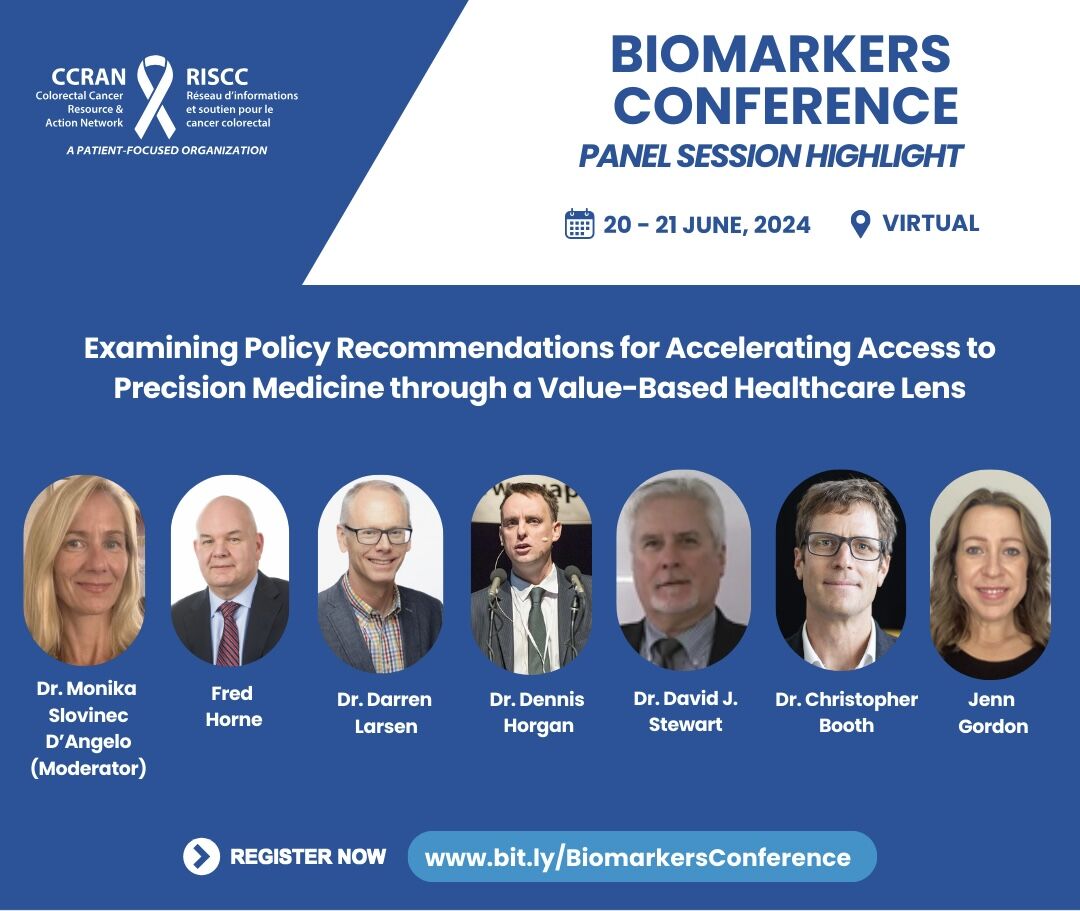
Denis Horgan: Tackling Colorectal Cancer, Canadian Style
Denis Horgan, Executive Director from the European Alliance of Personalised Medicine (EAPM), shared a post on LinkedIn:
“Tackling Colorectal Cancer, Canadian Style: Online Policy Session at Biomarker Conference
Brussels, June 21st, 2024: The scope for improving health is limited not only by the intrinsic complexities of disease, but by the persistent lack of adequate frameworks for turning possibilities into practicalities. The outcome is often that invaluable innovations are insufficiently developed or deployed, depriving patients of benefits that might in a better-organised world be available to them. As has become a familiar mantra in healthcare, a therapy that never reaches the patient is of little value.
This will be the focus of European Alliance for Personalised Medicine (EAPM) contribution this evening CET in the session below.
In many respects, healthcare suffers because the allocation of resources remains sub-optimal. More effective integrated approaches to care are often neglected. And the tendency within healthcare of operating in isolation rather than in collaboration still blunts the ability of science to influence the all-important policymaking sphere that dictates so much of the entire healthcare context.
But while the improved quality of technology has permitted breakthrough possibilities, it has not always been accompanied by parallel improvements in communication or understanding among all the multiple actors in the healthcare complex. This is why the session organised by CCRAN is important.
Closer and more organised collaboration at the level of politics, policy, patients, clinicians and technology developers will maximise the chances of innovation being adopted into health systems, and delivering on its potential. There are clear and recent examples in Europe of imperfect coordination resulting in imperfect policy – as with the complications for healthcare that have arisen with legislation on data protection or in vitro diagnostics, where insufficient attention to the broader picture has led to adverse consequences that were not always unforeseen, but were insufficiently considered. The same fate appears to hover over the EU’s pharmaceutical legislation, where the European Commission’s own quality audit team has emitted a negative evaluation of the proposal.
Getting this right means achieving the right links between essential factors – by deploying science, technology and policy in combination. The predictive capacity of digital technologies and advanced molecular diagnostics can not only prefigure the health status of target populations, but also assess their likely engagement with influential practices such as prevention or adherence to treatment. Offering genuine personalized medicine through health technologies allows patients to express their own experience of illness and health as guides to the choice and development of care pathways.”
Source: Denis Horgan/LinkedIn
.
-
Challenging the Status Quo in Colorectal Cancer 2024
December 6-8, 2024
-
ESMO 2024 Congress
September 13-17, 2024
-
ASCO Annual Meeting
May 30 - June 4, 2024
-
Yvonne Award 2024
May 31, 2024
-
OncoThon 2024, Online
Feb. 15, 2024
-
Global Summit on War & Cancer 2023, Online
Dec. 14-16, 2023
